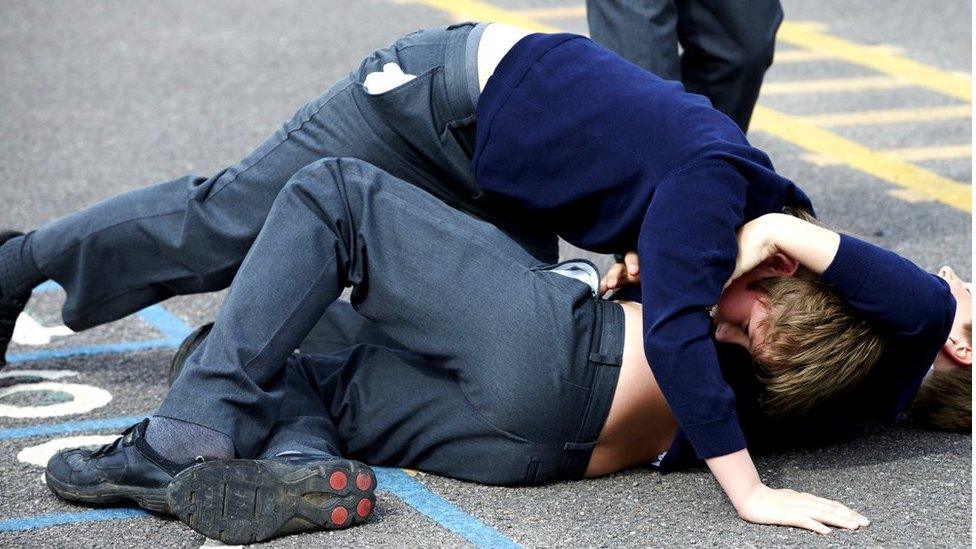Bullying in schools under-reported say experts
- Published
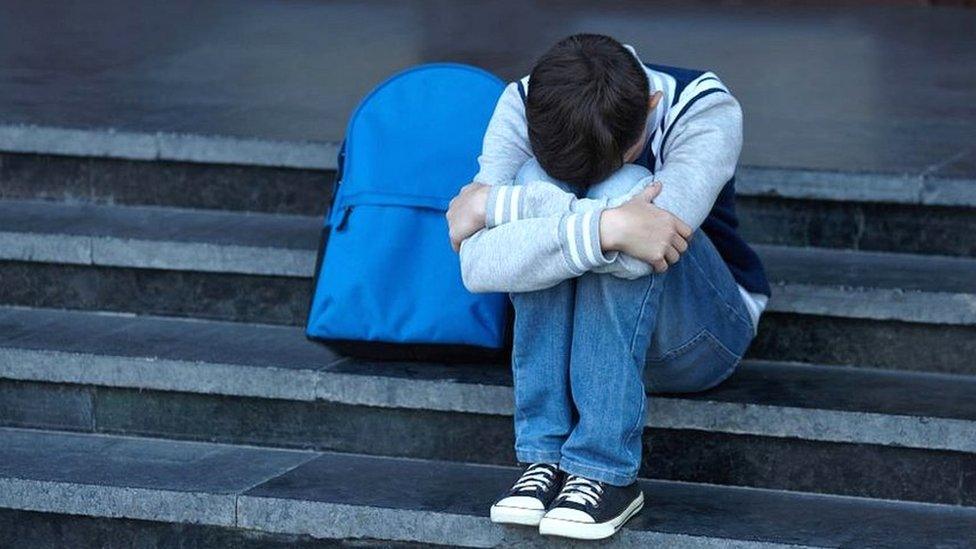
Bullying in Scotland's schools risks being under-reported because incidents are not being recorded properly, experts have warned.
A new system for monitoring bullying incidents was rolled out in 2019, but research by watchdog Education Scotland suggests many schools are not using it.
Teachers and children's counsellors have also told the BBC the problem is under-reported.
The Scottish government has started a review of its anti-bullying guidance.
The review comes as disturbing videos of violent fights and bullying between pupils are increasingly being shared on social media.
Last year Education Scotland sent inspectors to 35 primary and secondary schools to evaluate the recording and monitoring of bullying incidents.
They found only about two-thirds of the schools were fully implementing national guidance by recording incidents of bullying on an education IT system known as Seemis.
Some schools have their own set-ups to monitor behaviour issues, but Education Scotland found a third of those inspected did not currently have a "whole school process in place for monitoring incidents of bullying".
This is despite the apparent scale of the problem.
The same report included a questionnaire of just over 8,000 pupils at the 35 schools, which found 40% of respondents had been bullied at some point, but only 56% said their school dealt with the problem well.
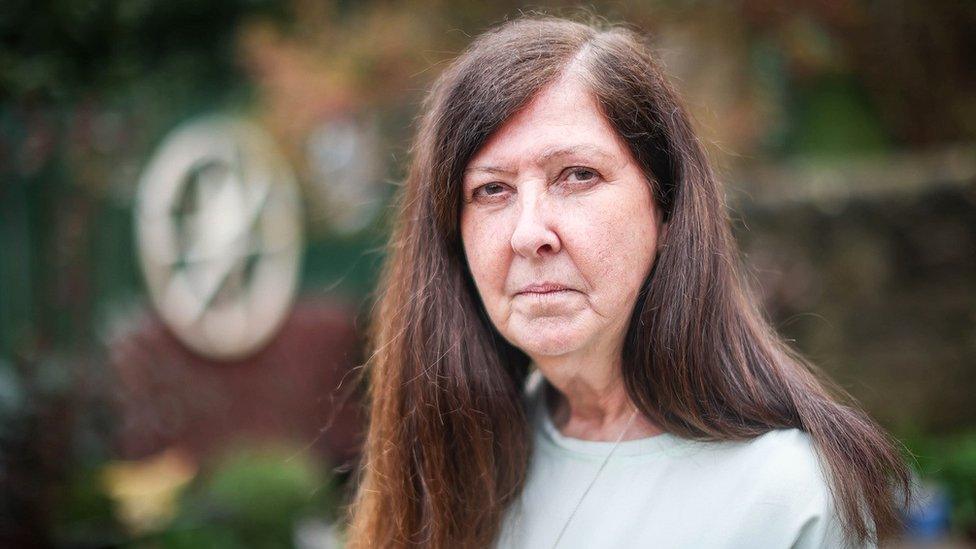
Counsellor Angela Gilluley says the impact of bullying on the young people she helps "lies heavily" on her shoulders
Angela Gilluley, a counsellor based in Kirkcaldy in Fife, said the majority of her work was now with young people who were often "too frightened to be at school any longer than they need to be".
She said: "Kids are petrified for their teacher to leave the room even just for five minutes because an attack could happen.
"I've got kids who sit across from me pleading for me to help.
"It is definitely under-reported. The kids themselves will tell you that we don't even go to anybody any more because why bother.
"Nobody takes any notice of what we are experiencing, they just put up with it."
Education Scotland inspectors found teachers, pupils and parents "find it challenging to agree which behaviours should be considered as bullying" and warned of the "risk that bullying is under-reported".
Inspectors said the lack of a "whole school process" for monitoring bullying meant staff were "not aware of patterns and trends as they arise" and it limited their capacity to deal with problems proactively.

'They hadn't recorded the bullying as promised'
The impact of bullying and the way it is handled by education authorities is well known to Amy and her family.
Amy, not her real name, was looking forward to the final few months of primary school when her life was upended by bullying.
"She was getting bullied at school over a period of several weeks but she hadn't told me because she feared repercussions," her dad John said.
"Then one day it just got too much, she refused to go to school and informed me what was happening but begged me to say nothing about it."
Eventually, John raised a formal bullying complaint and asked the school, which is in East Dunbartonshire, to put in measures to protect Amy from another child due to what John described as the child's unusual interest in his daughter's death.
John said the day after his daughter returned to school there was an incident involving a dangerous weapon which went unnoticed in a supervised play area.
"I was given assurances that it would be safe for my daughter to return to school and it would be dealt with, but it definitely was not," he said.
The school told John, who works as a data analyst, the incident had been properly logged on the Seemis IT system.
But the father-of-three suspected his concerns were not being dealt with properly and the narrative of what happened was being "whitewashed" in favour of the school.
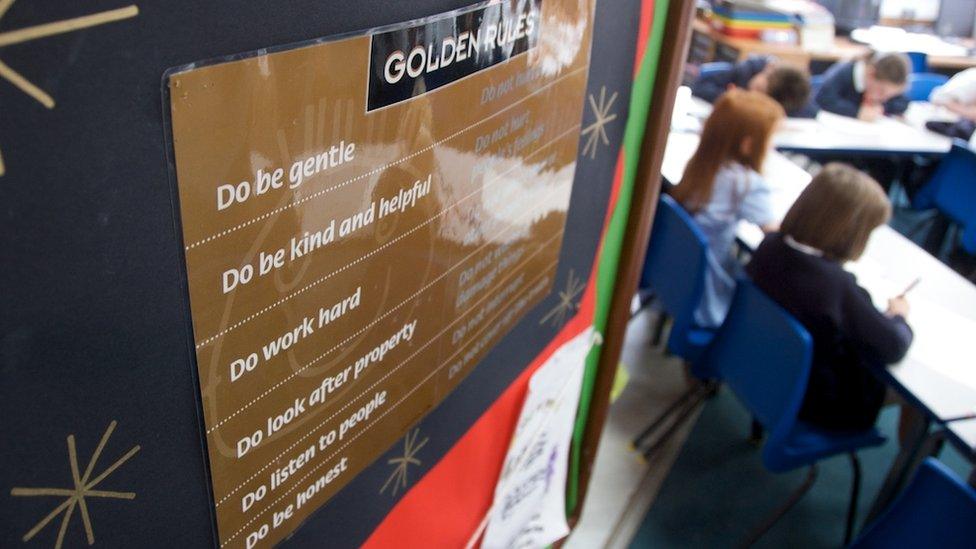
Following a civil court action by John, East Dunbartonshire Council released a summary of all changes made to Amy's Seemis records.
"It was three records which they sent over and all three had either been back-dated or edited at a later point and changed," said John.
The impact of the bullying of Amy is still being felt today after a series of failed transitions to high school meant she has missed many months of her education.
"My daughter has suffered life-changing harm as a result of this," John said. "It's had a massive impact on her wellbeing, health and education."
Ann Davie, depute chief executive of East Dunbartonshire Council, said the local authority would not comment on matters involving individual pupils.
She added: "The council takes all allegations of bullying seriously and schools take appropriate action to investigate and plan resolution for our young people as required.
"We are confident in our recording procedures and the policy for recording bullying is regularly highlighted to schools to ensure all incidents are dealt with as efficiently and effectively as possible."

In January, BBC Scotland asked all of Scotland's councils to provide full statistics on violence against staff and pupils.
Of the 32 local authorities, nine councils could only offer partial data on attacks on teachers and seven did not provide any data at all.
But what data was available showed a 45% increase in the number of incidents between pupils.
Separate freedom of Information figures have shown low recorded bullying rates across Scotland.
For example, Clackmannanshire Council logged just four bullying incidents across its four high schools between 2018/19 and 2020/21.
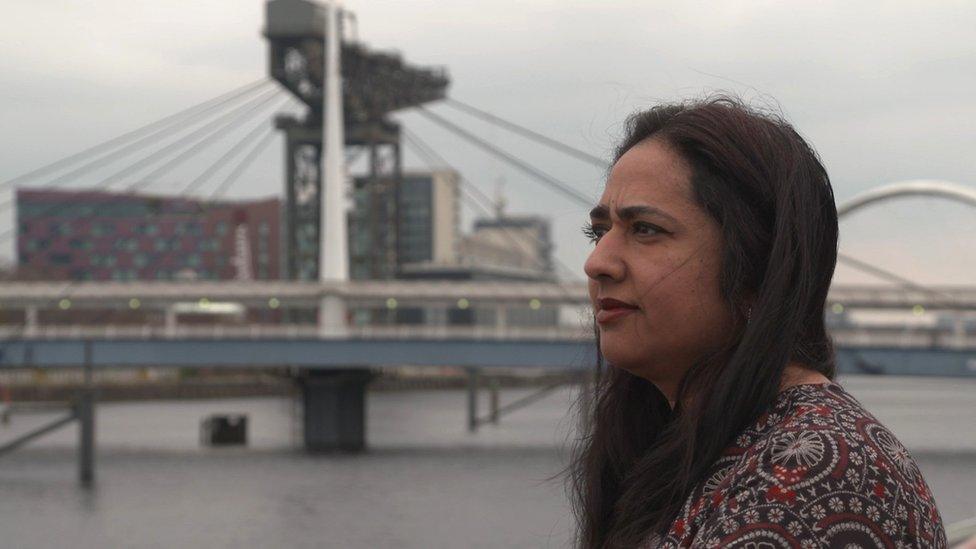
Nuzhat Uthmani, a teacher and EIS representative, says more work needs to be done
Nuzhat Uthmani, a teacher and EIS representative, said "meaningful conversations" between parents, teachers and councils were needed to understand why bullying is under-recorded in some schools.
"The support needs to be in place so even if a school is very good at recording incidents whenever they happen, what happens after that?," she said.
"That's the important thing. So if there is a particular issue around racism or homophobia within a certain local authority let's say - who then takes charge of that? Who is taking responsibility to make that better?"
A Scottish government spokesman said: "Bullying of any kind is unacceptable and must be addressed quickly whenever it arises.
"We have begun a review of our national anti-bullying guidance, Respect for All, and we have written to teachers, parents and young people's representatives asking what more can be done to support schools to support their children and young people."
Related topics
- Published27 January 2023
